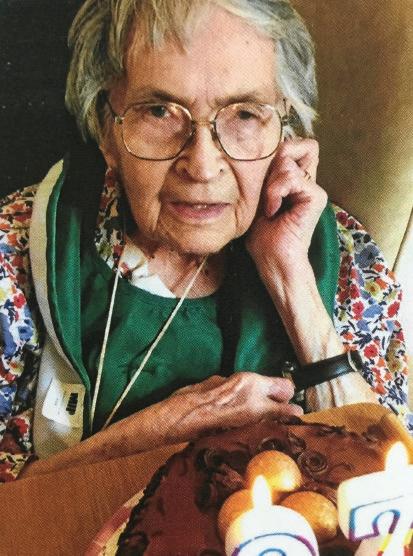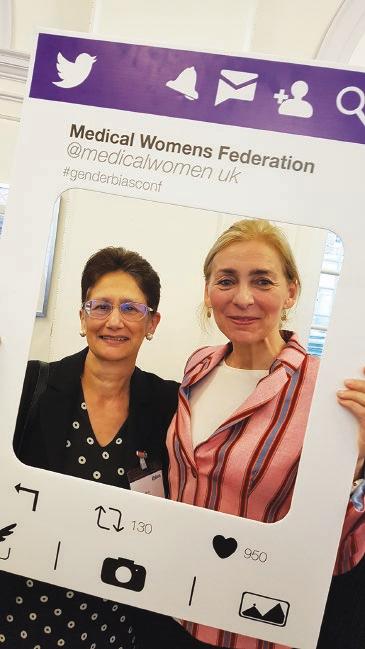
8 minute read
Skills Toolkit: Student to Doctor
Medical Student to Doctor: A preparation guide for soon-to-be doctors
Georgina Elliot is a junior doctor working in East London. She completed a Biomedical Science (BSc) degree at King’s College London prior to medical training at Barts and The London, graduating in 2017. She completed her Foundation Training in London, finishing in 2019. She is currently applying for a specialty training programme in Obstetrics and Gynaecology. Georgina also enjoys teaching as well as clinical work.
Introduction As you come to the end of medical school, you may be worrying about the challenge that lies ahead in August. Although the steep learning curve that faces you is generally considered to be one of the hardest to traverse, all around you there will be other doctors who are going through changes in their careers too. Foundation Year 1 (FY1) doctors will become senior house officers, senior house officers will become registrars, registrars will become consultants. Although having knowledge of this does little to make your transition easier, it is worth bearing in mind that you will almost certainly be working with people who are experiencing many of the same challenges you are; heightened responsibility, a feeling of under-confidence, and a desire to find your feet and excel in a new role. They will also almost certainly want to help make your transition from student to doctor as easy as possible. This article is intended to make you aware of the common difficulties that FY1 doctors experience, but also to give you advice on things that you can do now to help you ease the transition.
Responsibility As a medical student, you have responsibility for only yourself; your learning, your exam results, your logbook. As an FY1 doctor, you will be making decisions, giving advice, signing your name to prescriptions and management plans. Although there is always a senior around to check plans with, you will often be the only doctor to see a patient and make an assessment. Coming to terms with the responsibility of your assessments and decisions making a real impact on the lives of others can be a challenge. A way to tackle this ahead of time, as with all big challenges, is to prepare. It can be easy to get caught up in revision for OSCEs and written exams, but you should keep in mind that what you’re really preparing for is August. The majority of actual decision making and responsibility lies in on-calls, and that is what new doctors generally find hardest to manage. Therefore, you can prepare by shadowing an FY1 on as many on-calls as you can prior to starting work. Ask to carry the bleep and respond to calls as you would if you were on your own. See patients with
supervision, do the cannulas, blood cultures and arterial blood gases, look up the observations and bloods and come up with a management plan. This level of independent thinking and operating is often what people find most difficult, but if you can do it well with supervision that will give you confidence and experience going into your first shift. Another way to prepare is by practicing your practical skills as much as possible. If you have confidence in your practical skills, then that first call to insert a catheter or a cannula will be significantly smoother. And remember, if in doubt, call for senior support.
Rotas Moving from a life of self-directed learning and self-motivation to having your life governed by a rota will be a tough aspect of starting work. The majority of rotas include normal working days, long days, weekends and nights. These would be tough for anyone to adapt to and sleeping patterns can be erratic. Social lives can become difficult to negotiate. After five years of generally free weekends, many find it very hard to suddenly be missing out on events and occasions due to rota commitments. A way to tackle rota anxiety is to be well-informed. I would recommend reading the junior doctors Code of Practice 1 , and your contract 2 prior to starting work, so you are aware of what to expect. As per the Code of Practice, you are entitled to your full duty rota at least six weeks prior to your start date. Don’t be afraid to email your rota-coordinator if you haven’t got it in good time. If you are aware of specific time that you need off, it may be possible for them to give you a specific slot that accommodates that, so email them with that information as soon as possible (even prior to receiving your rota). Nothing hurts morale more than missing out on something important because of work, and you will thank yourself for ensuring you have plenty of rest time as well. If you need to swap on-calls, arrange them nice and early, don’t be shy in asking. Swaps are almost always possible if you are reasonably flexible with the days you can offer in return. However, be wary with overloading yourself with too many on-calls through swaps. If you end up working four weekends in a row you are likely to be exhausted and miserable. Be realistic and be kind to yourself! Remember that as per your contract, you are entitled to annual leave for life-changing events (i.e. your own wedding) but you need to inform the rota coordinator at least six weeks in advance to let them know.
Moving After five plus years at medical school in one area, moving away can feel incredibly hard. You may be leaving family members, partners and friends behind. A good way of making this easier is to arrange accommodation as soon as you can. Starting work while sleeping on sofas and trying to find somewhere to live is going to make everything more stressful. You should also arrange as much time as possible with your family and friends when you get your rota. Whether that’s planning a trip home, ensuring you can make a birthday party or keeping an evening free for a friend you want to catch up with, your social support will be invaluable to you over the first few months of work. If you are generally a very sociable person, get involved in the Doctors’ Mess. The Mess Committee is usually run by Foundation Year 1 and 2 doctors, and it’s a great way to meet and socialise with other doctors in your hospital/trust.
What if I don’t cope? Some doctors require more support than others through the foundation years, and that’s nothing to be ashamed of. It’s a difficult time for everyone, and there is plenty of support out there if you do begin to struggle. Being resilient isn’t the answer. Talking about it and seeking help if you need it is the best way to handle difficult times. If you find clinical duties hard to manage, your clinical and educational supervisors are there to help you keep on track, so they are your first port of call. You can also turn to your ward consultant, registrars and senior house officers for help if you feel more comfortable with them. They will often know exactly how it feels to go through foundation training and will have helpful advice. It is also important to remember your family and friends and make time for them. Finally, and most importantly, if you feel your mental health is suffering, make sure you see your GP, and discuss it with your clinical and educational supervisor as soon as you can if you need time away from work. Doctors are among the highest risk groups for developing a mental health condition, but we are some of the least likely to seek help. Looking after your own physical and mental wellbeing should be your top priority.
Great things Remember, most people really enjoy their FY1 year! There are some aspects that you can really look forward to. After years of lingering on the periphery of ward rounds and getting in the way, being an essential member of the team and being important to your patients is a feeling like no other. You are suddenly surrounded by new opportunities - audits, projects and representative roles to get involved in among others. Being able to teach medical students of your own is also exciting. They will often feel much more comfortable with you than the senior house officer or the registrar, and you will likely deliver a large part of their bedside teaching. Having a regular salary after years of debt is also not to be underestimated! It’s worth remembering that this is what you have been working towards for five (or more) years, and that all exams, projects, dissertations have led to this point. Nearly three years after starting FY1, I still remind myself of the privileged position that I hold and how lucky I am to be one of the select few to call myself ‘doctor’, and you should too. Before you know it, you will be thinking about postgraduate exams, specialty applications and the next step up the medical ladder, which will bring new challenges along with it. So good luck, enjoy it and look out for each other. Welcome to the world of practicing medicine!
Top 5 Tips for Making the Move: £ Shadow FY1 doctors as much as you can prior to starting work £ Get your rota and arrange your annual leave as soon as you can £ Find somewhere to live and settle in as soon as possible, don’t leave it until the last minute £ Look after your own physical and mental health £ Try and enjoy it!
References
1 Code of Practice: Provision of Information for Postgraduate Medical Training. NHS Employers, BMA, Health Education England 30/10/2017. Accessed on 12/1/20: http://bit.ly/3d99BiF










